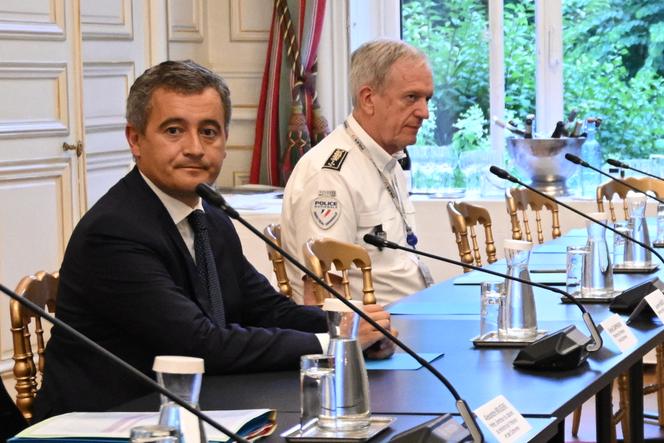


The city of Béziers, southern France, was deserted by the on the night of July 29-30. Officers assigned to the police station were on sick leave, according to various unions. The walkout was the latest in a series of work stoppages seen since July 21, in support of a member of a Marseille unit who was remanded in custody and charged along with three of his colleagues with assaulting a 21-year-old during a night of rioting last month.
Authorities could not provide the total number of sick leave applications submitted over the last ten days. The unions spoke of "several thousand" medical procedures throughout the country they described as mere "supports" of a protest coming from the "base." The Interior Ministry, on the other hand, referred to minister Gérald Darmanin's estimate of July 27, when he reported that "Less than 5% of police officers went on sick leave or refused to go to work." That's less than 7,500 out of the nearly 150,000.
"We're not witnessing a general blockage by the police force, rather very localized protests in some towns," said Grégory Joron, general secretary of the Unité SGP Police-FO union, reporting 700 sick days in Marseille, 400 in Lyon, and around 100 in Grenoble or Saint-Etienne. Without giving precise figures, the ministry said it had seen an "improvement in the situation" over the last few days, with a 5% drop in health-related withdrawals nationwide on Monday, a 40% drop at the Paris police headquarters, and a 13% drop in southern France, the epicenter of the mobilization.
Within the forces affected by the protests, mainly units assigned to fighting crime on the streets, it was sometimes difficult to distinguish between disruptions resulting from medical absences and those following recourse to "code 562" – police jargon for providing minimum service – or "attente-pause," an approach by which officers only respond to emergency calls.
But the increase in doctor's appointments over the past 10 days bears testimony to an unprecedented protest within a profession statutorily deprived of the right to strike. "Some colleagues are burnt out, with a real need to have a break," said Rudy Manna, national spokesperson for the Alliance police union. "From an event in Marseille, we quickly shifted to a global movement, with sick leaves as a wake-up call. Some officers don't feel up to managing the public domain anymore. And we're talking about people who, every day, go to war with a gun."
Doctors say the missions and weapons inherent to the profession are essential when drawing up a prescription. "As with any patient, we only have one point of view, that of the patient," said Marcel Garrigou-Grandchamp, head of the legal department of a French federation of doctors. "What practitioner would take the risk of not taking someone out of work who, even with simple sleep disorders, carries a weapon for work-related reasons?"
You have 32.23% of this article left to read. The rest is for subscribers only.
